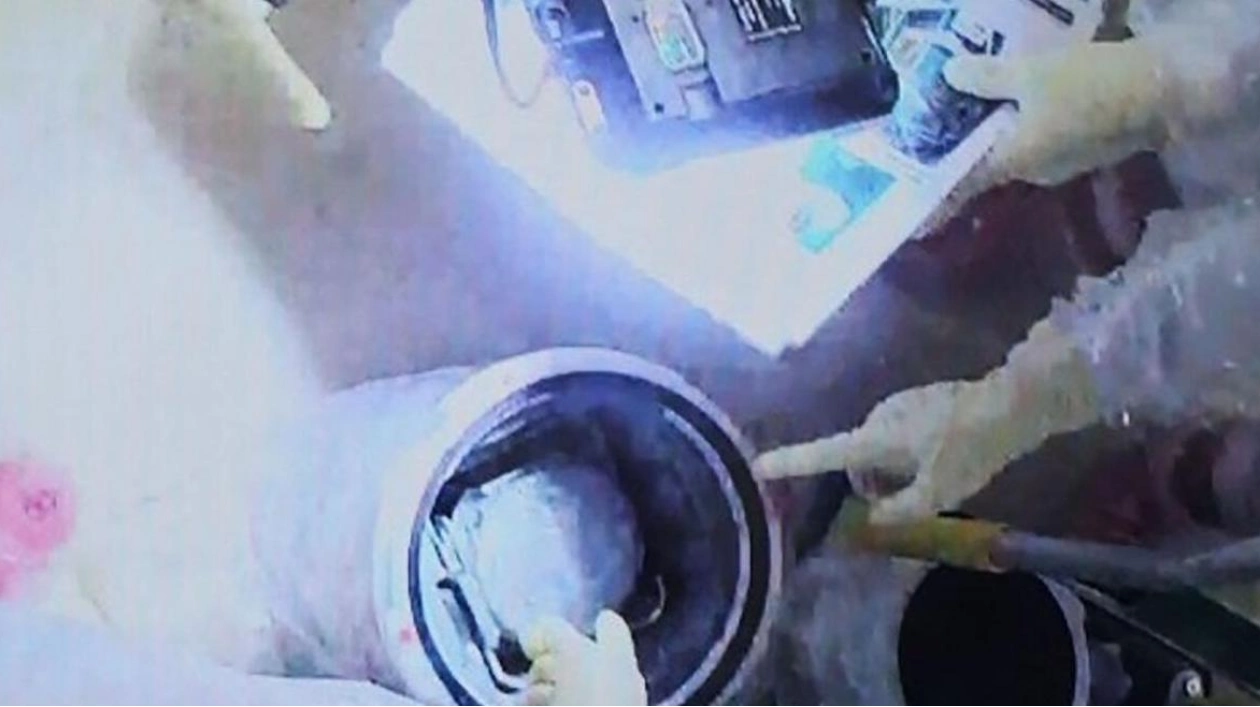This handout photo, released on November 7 by Tokyo Electric Power Company (Tepco), shows employees loading a transportation box containing fuel debris from Unit 2 into a DPTE container at Tepco's Fukushima Daiichi nuclear power plant in Okuma, Fukushima prefecture. AFP
A small amount of radioactive debris, extracted by a robot from Japan's stricken Fukushima nuclear plant, has reached a research lab near Tokyo, according to the plant operator. This development follows last week's announcement by Tokyo Electric Power Company (Tepco) that a challenging trial debris removal operation using a specially designed extendible device had been successfully completed. More than 13 years after a catastrophic tsunami, triggered by a 9.0-magnitude earthquake, led to one of the world's worst nuclear accidents, approximately 880 tons of hazardous material still remain. The removal of this debris is considered the most formidable challenge in the decades-long decommissioning project due to the dangerously high radiation levels.
Despite encountering technical difficulties that caused delays, the trial debris removal from the northeastern Japan plant proceeded with the goal of studying the sample to gain insights into the conditions inside the reactors. Tepco confirmed in an email to reporters that "the transportation of the fuel debris collected during the test removal operation... was completed" in the afternoon. The company had previously withheld details about the 160 km journey to the Oarai Nuclear Engineering Institute of the Japan Atomic Energy Agency (JAEA) for safety reasons. According to Japanese media, while the sample retrieved by the robot weighs 0.7 grams (0.02 ounces), the JAEA has stated it requires at least one gram for a thorough analysis.
Three of Fukushima's six reactors experienced meltdowns in 2011 after the massive tsunami inundated the facility. Last year, Japan initiated the release of some of the 540 Olympic swimming pools' worth of reactor cooling water accumulated since the disaster into the Pacific Ocean. This action ignited a diplomatic dispute with China and Russia, both of which imposed bans on seafood imports, despite Japan's insistence that the discharge is safe, a stance supported by the UN atomic agency. However, Beijing announced in September that it would "gradually resume" importing seafood from Japan.
Source link: https://www.khaleejtimes.com






